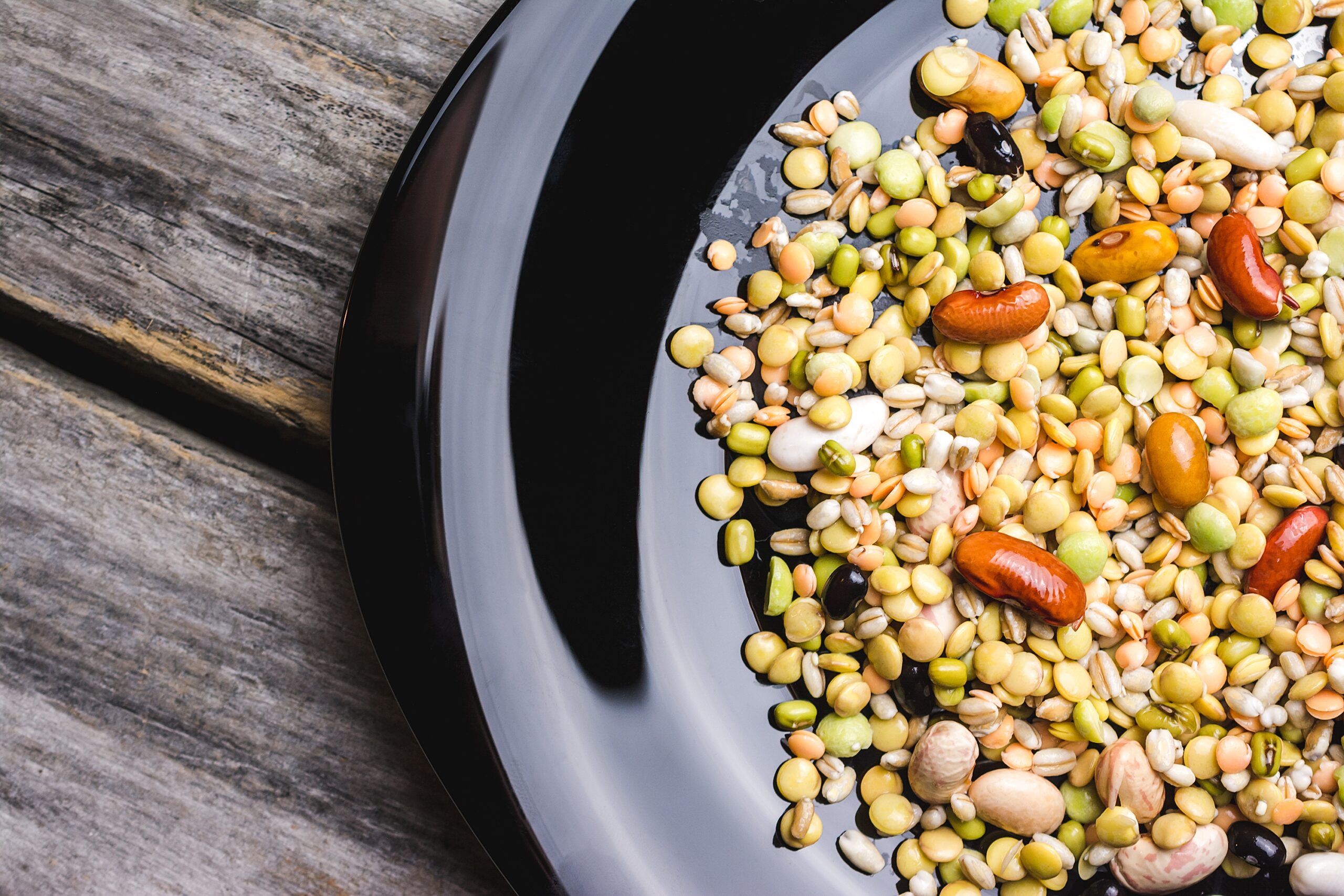Many people often associate good health with eating three meals a day plus snacks in between. But the human body wasn’t designed to be in a constant fed state. In fact, when done with awareness, there are several benefits of fasting that can be deeply healing for the gut.
Across cultures and spiritual traditions, fasting was practiced not just as a ritual but as a reset—physical, emotional, and even cellular. I remember chatting with a client during Ramadan, and she said something that stuck: ‘It’s not the food I miss; it’s the awareness it brings.’ There’s more power behind it than just the health benefits of fasting. Today, research is starting to support what these traditions knew intuitively: that giving the body space from constant digestion can reduce inflammation, support microbial balance, and enhance overall well-being.
This isn’t about deprivation or trends. It’s not about how long you can go without eating. It’s about understanding that rest is just as important as nourishment—and that sometimes, doing less gives your body the chance to do more.
Now, here’s something I want you to think about: Your gut isn’t just about digestion. It’s your second brain. Through the gut-brain axis, it communicates directly with your mood, your immunity, and your metabolism. And smart, intentional health benefits of fasting can actually nourish this connection—by improving fermentation, enhancing microbial balance, and boosting resilience from the inside out.
Meet Your Microbiome: The Powerhouse in Your Gut
Let’s take a moment to talk about the little ecosystem living inside you—your gut microbiome. This incredible universe of trillions of bacteria, fungi, and other microbes isn’t just hanging around. It’s doing the heavy lifting when it comes to digestion, immunity, and even your mood and energy levels.
Two of the most talked-about families of gut bacteria are Bacteroidetes and Firmicutes. A healthy ratio between the two is linked to better metabolism, immune function, and even weight balance. One of their key jobs? Gut fermentation—breaking down fibers and resistant starches into short-chain fatty acids, which fuel your gut lining and reduce inflammation.

But when this balance is off, we call it dysbiosis. It’s what happens when harmful bacteria overgrow, often due to antibiotics, stress, or poor eating habits. The result? Bloating, cravings, fatigue, and lowered immunity. That’s why nurturing your gut flora is a non-negotiable part of healing—and fasting can help.
What Happens in the Gut When You Fast
When you take a break from eating—whether it’s an intentional fast or simply giving your body space between meals—something amazing begins to happen in your gut.
Your gut is home to trillions of microbes—bacteria, fungi(mycobiome), even viruses (gut virome)—working together as part of your gut microbiome. This internal ecosystem plays a massive role in digestion, yes, but also in immunity, hormone production, inflammation regulation, and overall health. It’s not an exaggeration to say that your gut is at the center of almost everything happening in your body.

One of the ways these microbes support you is through fermentation—breaking down complex fibers to produce short-chain fatty acids like butyrate. Butyrate doesn’t just nourish your gut lining; it strengthens the intestinal barrier, prevents leaky gut, lowers inflammation, and even calms an overactive immune system. When the gut barrier is intact, harmful bacteria and toxins are less likely to pass into the bloodstream, which means lower systemic inflammation and better immunity.
Think of your gut lining like a tightly woven fishnet—it’s designed to let only small, digested nutrients pass through while keeping larger, harmful particles out. But when this lining becomes compromised, the ’holes’ the net loosen. Larger particles—undigested food, toxins, and bacteria—can slip through into the bloodstream. This phenomenon, often called leaky gut, can trigger widespread inflammation and weaken your immune resilience.
Now, here’s where it gets interesting: During periods of fasting, harmful bacteria in the gut may reduce in number while beneficial ones begin to thrive. This shift supports microbial diversity, a key marker of a healthy gut. That’s why the benefits of fasting aren’t just about metabolism or fat loss—they go deep into the core of your health.
When you follow basic fasting rules, your body moves into repair mode. This is where the connection between fasting and gut health becomes clear— you’re creating space for your gut to strengthen, heal, and do what it was designed to do. Supporting your gut is one of the most profound health benefits of fasting, and it starts with something as simple as giving it time to rest.
What Fasting Actually Does to the Gut
When you fast, even for a few hours, you’re giving your gut something it rarely gets in today’s non-stop eating culture: a break. A pause from digestion means less energy spent on processing food and more energy directed toward repair, cleansing, and microbial balance.
Studies show that the benefits of fasting include significantly improved gut health. It aids in increasing microbial diversity—meaning a wider variety of good bacteria are able to flourish. In particular, research published in Nature Communications (2021) found that one of the health benefits of fasting is increased levels of Bacteroidetes, a group of beneficial bacteria linked to better metabolism, blood sugar control, and immune resilience.
Another study in Cell Reports (2023) showed that short fasting periods altered the gut environment in a way that favored the growth of SCFA-producing bacteria, which are key to gut lining repair and inflammation control.

It’s fascinating how ancient traditions built in periods of giving the gut a rest to reap the benefits of fasting—intentionally or through lifestyle—and how those same rhythms now have science behind them. This is the body’s version of a reset button. Quiet, intelligent, and incredibly powerful.
Fermentation, Fasting, and Gut Health
One of the most beautiful things about the human body is how much it can do when we simply get out of its way. And nowhere is that more evident than in the gut.
Every time we eat, our digestive system gets to work—breaking down food, absorbing nutrients, managing blood sugar spikes. But when we eat too frequently, especially without structure, we can overwhelm this system. That’s where the benefits of fasting play a powerful role—not as a restriction but as a rhythm reset.
When we give our gut even a few hours of pause between meals, it allows beneficial bacteria—especially the ones involved in fermentation—to flourish. Fermentation in the gut is essential for breaking down complex foods, creating short-chain fatty acids, and supporting immunity.
Think of it as resting fertile soil. With rest, the gut restores balance, reduces bloating, and improves everything from digestion to mood. It’s about creating space for the gut to breathe, heal, and thrive.
Smart Fasting, Smarter Cells: Autophagy and Gut Defense
Let’s talk about one of the body’s most intelligent processes—autophagy. It literally means self-eating, but not in a bad way. It’s the body’s built-in self-cleaning function where old, damaged, or toxic cells are broken down and recycled. And guess what triggers this? Smart fasting.
When you give your digestive system a break from constant food intake, your cells start focusing on repair instead of digestion. Studies like the one published in the Journal of Clinical Investigation (2023) have shown that autophagy plays a vital role in maintaining the health of the gut lining—our first line of defense against toxins, infections, and inflammation.

So when we fast smartly (not starve), we’re not just giving our gut a break—we’re switching on a powerful internal reset. Autophagy is like the housekeeper your gut didn’t know it needed. It’s your body’s way of clearing out the old to make space for better health and stronger immunity.
The Alkalizing Benefits of Fasting
When you stop eating for a while, your body naturally begins to shift into a more alkaline state.
Now, let’s be clear: your blood pH is tightly regulated by your body and doesn’t drastically change. But at the cellular level, lifestyle habits—including fasting—can influence how acidic or alkaline your internal environment feels. When we fast, the acid load on the body decreases because there’s less constant digestion, less processed food, and fewer inflammatory triggers.
This shift creates a gentler, more supportive environment for your gut bacteria. It also allows enzymes to function better and fosters a kind of internal balance that supports digestion, healing, and immunity. Fasting, in this way, gently nudges the body back into its natural rhythm—and that’s powerful.
The Right Way to Fast (Not the Fad Way)
There’s a right way to fast—and it has nothing to do with trends or punishment. One of the top benefits of fasting is that, when done correctly, it becomes a sacred rhythm that supports healing. But to benefit from it, you have to respect the body and listen deeply. Here’s how:
- Understand the difference between physical and emotional hunger.
If you’re truly hungry—low energy, stomach growling—that’s physical hunger. Feed your body. But if it’s boredom, stress, or sugar cravings, pause and reflect. That’s emotional hunger.
- Break your fast when real hunger strikes.
Don’t push unnecessarily. Your body knows when it’s had enough. There’s no need to suffer.
- If you’ve eaten, your fast is over.
Even a bite counts. It’s okay. Try again the next day. Don’t turn fasting into a test of discipline.
- Let teenagers follow their natural rhythms.
If they’re not hungry in the morning, that’s fine. Don’t force breakfast.
- Respect fasting.
Don’t use it as punishment or to make up for overeating. Fasting is therapeutic when done with intention.
“Fast because it’s going to make you stronger, it’s going to boost your immune system, it’s going to make your skin better, it’s going to make your hormones work better. Fast because of that. Don’t fast for weight and you know, don’t do a fad.”
- Luke Coutinho
Let fasting be about healing, not fitting into a box.
Actionable Tips to Gain the Maximum Benefits of Fasting
If you’re thinking of exploring the benefits of fasting to support your gut, I want to remind you—there’s no one-size-fits-all. What works for someone else may not suit your body, your schedule, or your current health needs.
Start small and be gentle. You don’t need to jump into rigid fasting windows like 16:8 or 14:10 unless you’re ready. The idea is to give your digestive system time to rest and reset.
During your fasting window, hydration is key. Sip on plain water. It keeps your gut calm and your energy steady.

When you break your fast, do it with intention. When you break your fast, break it with some lemon water or plain water. The right way to break your fast is to sit down and sip water slowly. Swirl this water around in your mouth. Do not just gulp it down. Once done, you need to line your stomach with fruits. You can eat one or two fruits or even have some dry fruits. 30 minutes later, you can start introducing other foods in the building phase.
Don’t overload your plate. Choose simple, nourishing meals with good fats, fiber, and clean proteins.
And most importantly, listen to your body. Fasting isn’t about punishment. It’s about creating space for healing. If your body feels better with lighter dinners or an earlier mealtime window, that’s a win, too.
Final Word: Give Your Gut the Pause It Needs
Fasting isn’t about deprivation—it’s about creating space. A gentle pause. A moment of rest for a system that’s often overworked.
Don’t fast to punish your body or undo a heavy meal. Fast because your body deserves a break. When done mindfully, fasting can support digestion, lift your energy, stabilize your mood, and help your gut begin to heal.
Your gut knows what it needs. Sometimes, that’s less food. Sometimes, it’s more trust. You don’t need to push. You need to tune in. Let your gut guide you, and the results will speak for themselves.
Ready to Make Your Health a Priority?
Explore Luke’s latest book, The Dry Fasting Miracle, for deeper healing insights.
Start your journey with one positive action today.
Check Out Our Gut Care Program with Luke.
Looking for personalized advice? Our experts are ready to help you thrive.
Reach Out to Team Luke’s Integrative Health Coaches!
Book a one-on-one with our team. Call: 1800 102 0253 or write to us at [email protected].
Disclaimer: Fasting is not for everyone; what works for one may not work for others. Always make an informed choice; keep your healthcare provider in the loop for supervised and scientific fasting. The information provided in this blog is intended for educational purposes only and is not a substitute for professional medical advice, diagnosis, or treatment. Speak with your healthcare provider before making any changes to your nutrition, exercise routine, or lifestyle. The effectiveness of the strategies mentioned may differ from person to person. The content is based on current research, but it is important to remember that science and health recommendations may evolve over time.










